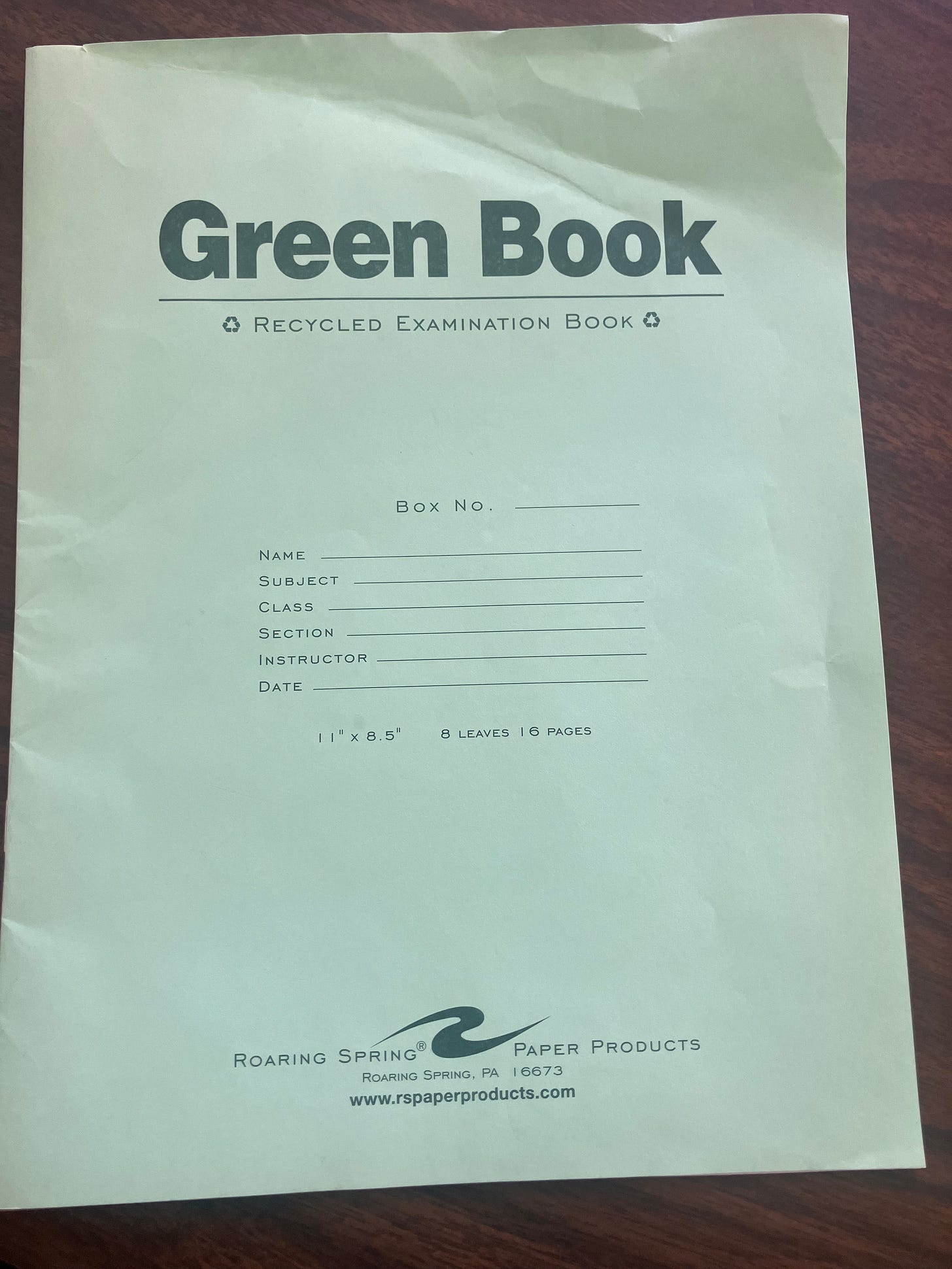I assigned my first scaffolded term paper a few years ago, having been tipped off to the coming AI catastrophe by a philosopher more tech-aware than myself. I expected the resulting papers to be worse than the old fashioned ones, but better than nothing. What I expected was not what I got. It turns out, when students know in advance that they will have (a) limited time, and (b) no internet access, they prepare accordingly.
My blue-book papers are less polished than the old ones. Of course they are. They are not otherwise worse. They are, in many ways, much better.
I plan on writing a few posts on this. I’ve tried a number of approaches, some more suitable than others for any given class.
Here’s what I did the first time I tried it.
The class was Philosophy of Mind, PHI 4320. At my university, this means mostly juniors and seniors but there is no philosophy prerequisite.
My first step was to assign short in-class writing for every class session. This cost me about 10 minutes of class per session. Some days it was more like 5 minutes, others more like 15. The gain was significant. Most of the students read carefully and came to class with their annotated texts. The level of discussion was so much higher, and so many more students participated. I was embarrassed to see how wrong I had been about their capabilities in the past.
My next step was to have them choose a topic for their final essay. (For this first attempt, I used the essay portion of the final exam for their scaffolded paper. I wasn’t sure how it would go, and I didn’t want to to be too heavily weighted. Now, I would make it the full exam.) I made myself available to those who had trouble finding a topic. I offered a variety of ideas.
I required a proposal, and I allowed basically unlimited revisions. The whole point was to get them well situated to write a good final essay. I incentivized getting it done by having a late penalty, but I did not assign any penalty for revisions. (i.e., any points lost could be regained by making things right.)
Here is the rubric according to which their proposals were graded:
Finally, they wrote the paper during the final exam period. Here are some things that ended up being important:
The regular in-class writing gave them the practice they needed to find and use appropriate textual evidence. I’m not sure this would have worked well had they not been doing this all semester.
I gave them clear suggestions for editorial annotations, which they could use without being penalized. Left something out? Use a giant arrow or an asterisk to show me where it should be. Wish you could reorder the paragraphs? Go ahead! Number them, use arrows, whatever works best—just be clear enough for me to know what you meant. (Hence my own suggestions.) It’s ok to impose some structure after the fact, even if it’s messy.
Finally, I encouraged them to write on something they cared about. It just makes it easier to do a good job. It’s also much more fun to grade the inevitable variety of papers. I felt like I got to hear my students voices more than I had before.
Again, this was a first pass attempt. I would do some things differently.
Even so, it wildly exceeded my expectations.
The students showed up prepared, and they wrote genuinely insightful things.
(All of them? Of course not. But far more than did when I assigned a paper in the past.)
I’ll close with a plug for a friend’s substack.
When I first read these words, I realized I’d been doing exactly this.
I had my reasons. (No philosophy prerequisites for a 4000-level philosophy course? Madness!) But they were not good enough reasons. My old papers were bad —even the good ones—because my old assignments were bad. I’m glad AI nonsense has pushed me to make them better.






